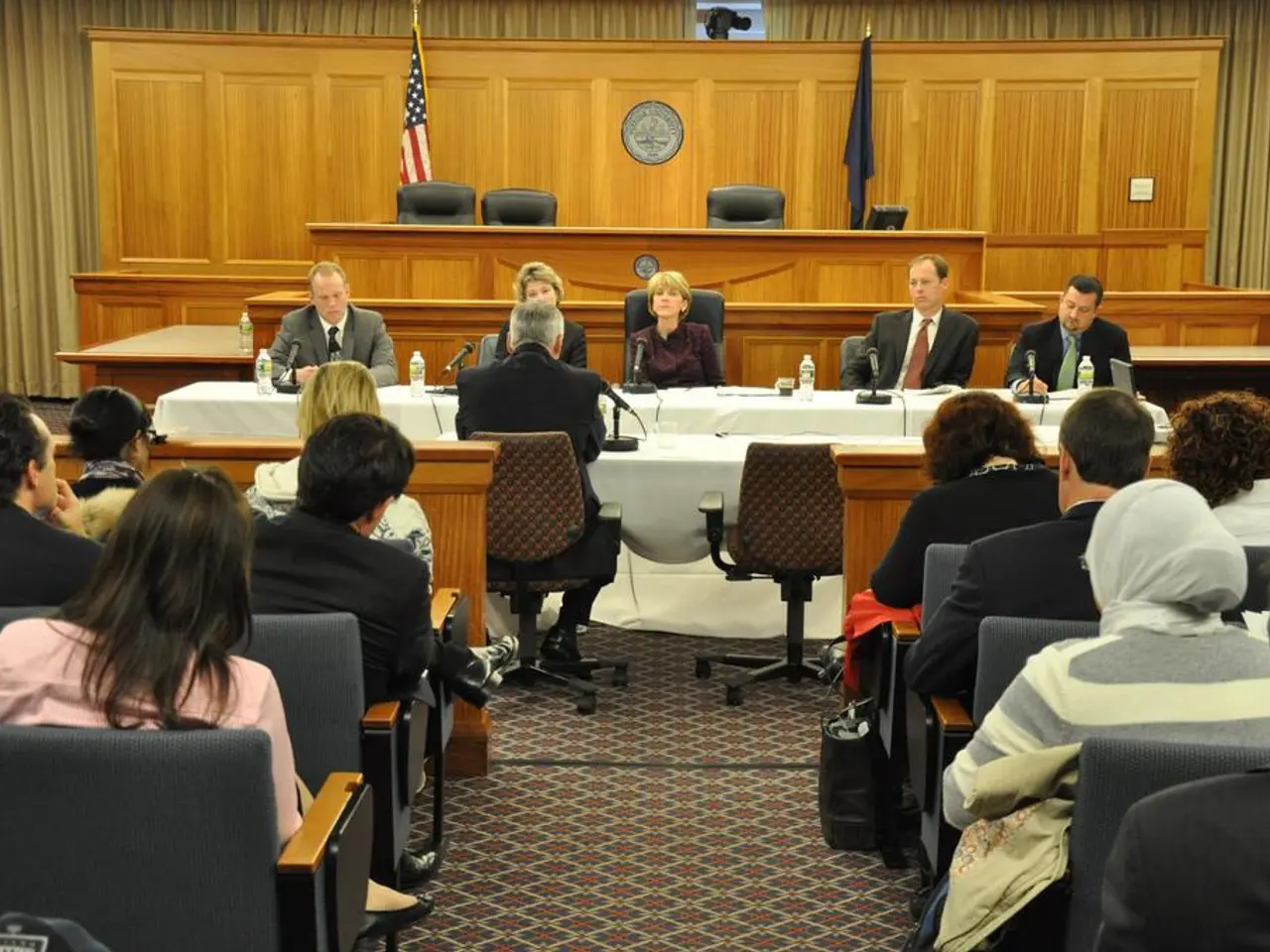Conflict over citizen's funds, no more pretense!
In recent discussions, the CDU/CSU conservative parties in Germany have put forth proposals to reform the Citizen's Income (Bürgergeld) system, aiming to strike a balance between social support and incentives to work. The focus is on reducing fraud, ensuring that work pays more than relying on welfare, and targeting benefits for those genuinely in need.
CDU/CSU's Proposals
Federal Minister of Economics Katherina Reiche (CDU) has called for rapid reform to ensure that "working pays more than staying at home." She emphasizes the importance of able individuals participating in the labor market and earning part of their living. Tilman Kuban (CDU) has also highlighted the need for closer scrutiny of unemployment benefits, proposing that the citizen's income be reserved strictly for those genuinely in need, excluding those unwilling to work.
Bavarian Prime Minister Markus Söder (CSU) has proposed reducing benefits for certain Ukrainian refugees by removing them from the full citizen’s income scheme and instead granting them lower benefits under the Asylum Seekers Benefits Act. This move is aimed at encouraging Ukrainian refugees to seek employment opportunities.
The CDU/CSU leaders have emphasized restructuring Bürgergeld into a more stringent basic security system, aiming to reduce the number of beneficiaries while maintaining necessary support for the truly needy.
Constitutionality and Social Debate
While the CDU/CSU pushes for reforms, there is debate over the constitutionality of restricting benefits based on origin or work status. Equal treatment under social law is a fundamental principle, but there is no explicit constitutional challenge mentioned in the sources regarding CDU/CSU proposals. Instead, the focus is on political feasibility and social acceptance.
The CDU/CSU’s position also faces criticism concerning the balance between providing a minimum subsistence level guaranteed by law and implementing stricter conditions and cuts.
Concerns about Exploitation and Fraud
The government acknowledges that the citizen's income program can be exploited by criminal networks, creating complex fraud schemes involving undeclared work and welfare claims simultaneously. This adds impetus for CDU/CSU’s push for reforms with closer monitoring and stricter eligibility.
The rising costs—expected to near €52 billion in 2025—further pressure calls for reform to contain the social budget and address labor shortages caused in part by some workers opting out of low-paid mini-jobs due to increased welfare benefits.
Social and Political Context
The debate about Bürgergeld remains highly polarized, with some opposition parties and labor advocates warning against freezing benefits or lowering them below minimum subsistence levels. CDU/CSU officials express confidence that coalition partners can achieve consensus on reforms balancing fiscal responsibility and social protections.
In conclusion, the CDU/CSU seeks to reform Germany's citizen's income by tightening eligibility, ensuring work incentives, and reducing fraud and costs. The ongoing debate revolves around maintaining constitutional social rights and equitable welfare standards.
The CDU/CSU party leadership is advocating for reforms in the citizen's income (policy-and-legislation) system, aiming to strike a balance between social support and incentives to work, as they believe working should pay more than staying at home in the context of politics. The government is considering proposals to scrutinize unemployment benefits and exclude individuals unwilling to work from receiving citizen's income (general-news).







